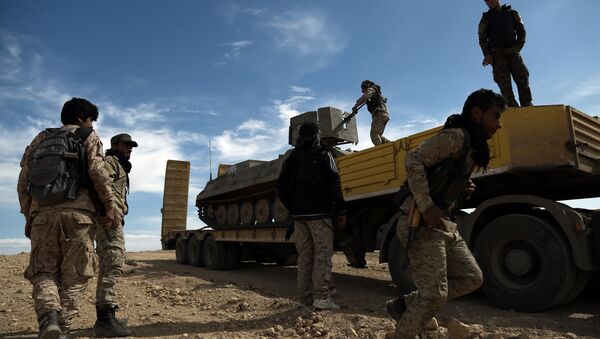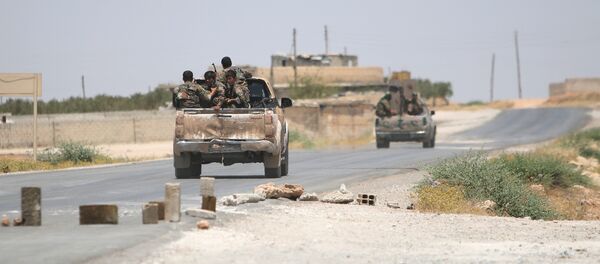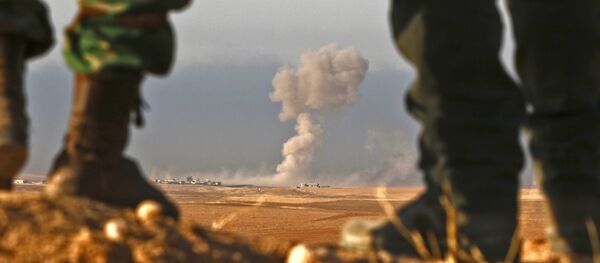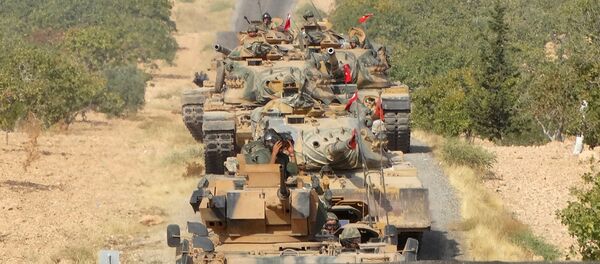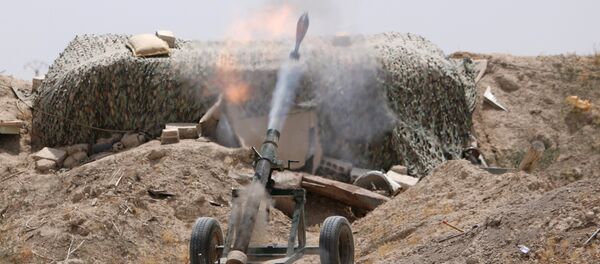According to Stratfor analysts, the key problem is that "not all of the United States' coalition allies share its desire to start targeting Raqqa in the next few weeks."
The reason behind is the fact that Raqqa is predominantly Arab. This would require a "sizable Arab force" to take control over the city. In the fight against Daesh, the West relies on the Syrian Democratic Forces (SDF). The SDF include several Arab units, but its dominant force is the Kurdish People’s Protection Units (YPG).
The US has made attempts to resolve this problem. In particular, Washington sent 25 special operations forces in April to speed up the recruitment and training of Arab fighters for a Raqqa offensive, according to the report.
"Nevertheless, Turkey and several NATO member states remain unconvinced that enough Arab forces have joined the coalition," the report read.
The Kurdish YPG forces remain the main and most capable part of the SDF and they are expected to play the crucial role in the liberation of Raqqa.
"Yet that will pose a significant risk in itself, raising the possibility of inflaming the country's deeply rooted sectarian tensions. This danger has alarmed several US partners, including the United Kingdom, and British Defense Secretary Michael Fallon has warned that Raqqa's Arab population may not welcome a Kurdish invasion," the report noted.
Ankara also has concerns about possible clashes between Arabs and Kurds. But what is more important, Turkey sees the Kurdish YPG as an enemy. Ankara has even proposed its own plan for Raqqa, in a bid to avoid relying on Kurdish forces. The proposal was to postpone the offensive until Arab units replace Kurdish forces in the SDF.
"But Ankara's plan would not be put into practice fast enough for Washington's liking. The United States wants to start the Raqqa operation immediately, and since the Syrian Democratic Forces are the only group ready to do so, the United States appears to be intent on placing the offensive on their shoulders," the report read.
Earlier on Sunday, SDF fighters announced the start of an offensive on Raqqa "within hours." The group said that the US would coordinate actions with the SDF to "provide air cover" during the operation.
The ground operation in Raqqa would be carried out only by the Syrian Democratic Forces, the SDF said during a press conference in Ain Issa near Raqqa.
Stratfor outlined a possible scenario for further US actions in Raqqa.
The US may decide to send more of its special operations forces to Syria.
"They would likely focus their efforts on managing the coalition's shaky structure in northern Syria. The troops would essentially act as the glue holding the coalition together, facilitating communication among its participants and deconflicting operations," the report read.
Finally, Washington may apply the tactic of a compromise like it has done in the Mosul operation. This means that the Kurdish forces would help surround Raqqa while Turkey’s allies and other Arab units would capture the city itself, the report concluded.

